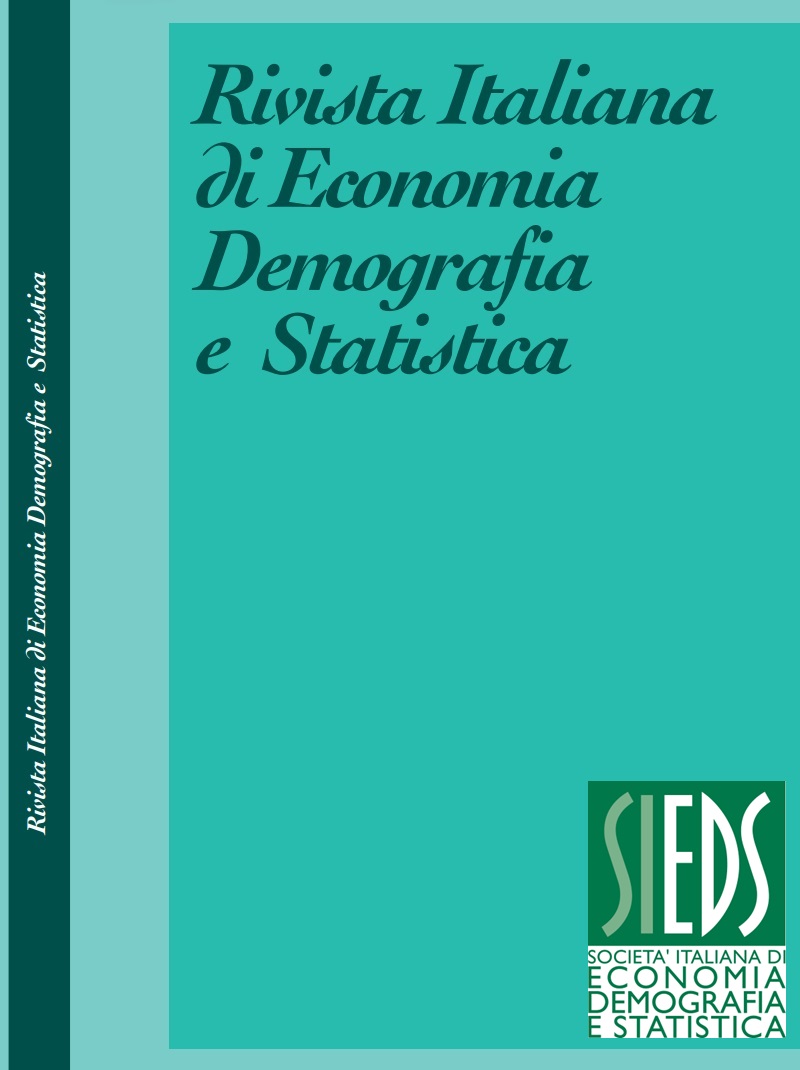Social policies expenditure in Calabria according to territorial public accounts
Abstract
Europe 2020 Strategy puts forward three mutually reinforcing priorities: smart growth, sustainable and inclusive growth, and with this in view proposes to fulfil by 2020 some targets relating to five thematic areas: employment, education, poverty and social exclusion, R&D and innovation, and climate change and energy. Unemployment and poverty are major issues in most EU countries, and Italy, especially its southern regions, still lag behind in terms of achievements of objectives. This paper focuses on Calabria, one of the most disadvantageous Italian regions with regard to employment and poverty and social inclusion. Specifically, following a general demographic, economic, and social analysis, this study focuses on the regional expenditure of the extended public sector (EPS) on the macro sector of social policies – it includes three sectors: social security and wage subsidies, employment and measures in the social field – using Territorial Public Accounts (TPA) as data source. The expenditure analysis is based on the TPA 2000‐2018 time series. In 2018, the consolidated public expenditure of the EPS on social policies in Calabria amounts to 11,007.20 million Euros. In Calabria, the macro sector of social policies accounts for most of the total expenditure of the EPS because of the numerous interventions in the social field, especially in the social security and in the wage subsidies. Social policies management is mainly a matter of central responsibility. Current expenditure accounts for a large part of total expenditure in the macro sector of interest, in particular the current account transfers to households and social institutions. This analysis stresses the importance of investment programmers to support a region particularly afflicted by financial and social problems, mobilizing, for example, substantial resources to make capital investments useful for boosting growth.
Downloads
Published
Issue
Section
License
Copyright (c) 2020 Pietro Iaquinta, Elita Anna Sabella, Francesco Sassone

This work is licensed under a Creative Commons Attribution 4.0 International License.



